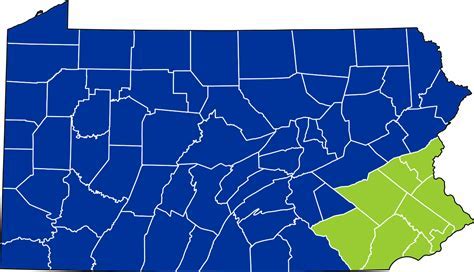
While New York senators have frequently clashed with the White House over judicial appointments in the state, their neighbors in Connecticut have quietly formed a working relationship that has produced three relatively uncontroversial nominations, including that of William Nardini to the Second Circuit.
Background
William Joseph Nardini was born in Glen Ridge, NJ in 1969. Nardini received his B.A. summa cum laude from Georgetown University in 1990 and his J.D. from Yale Law School in 1994.[1] After graduating, Nardini clerked for Judge Jose Cabranes on the U.S. Court of Appeals for the Second Circuit and then for Judge Guido Calabresi on the same court. Nardini then clerked for Judge Sandra Day O’Connor on the U.S. Supreme Court
In 2000, Nardini joined the U.S. Attorney’s Office for the District of Connecticut.[2] He currently serves as Criminal Chief of the Office.
History of the Seat
Nardini has been nominated for a Connecticut seat on the U.S. Court of Appeals for the Second Circuit. This seat was vacated by Judge Christopher Droney, who moved to senior status on June 30, 2019.
In April 2019, Nardini was contacted by the White House to gauge his interest in the Second Circuit.[3] In May 2019, Nardini applied to a selection committee set up by Connecticut Senators Richard Blumenthal and Christopher Murphy (both Democrats).[4] On July 31, 2019, Nardini interviewed with the White House and with Blumenthal and Murphy, who both decided to back his nomination. Nardini was nominated in September 2019.
Legal Career
Nardini has primarily worked as a federal prosecutor in Connecticut. However, Nardini also spent four years on detail with the U.S. Embassy in Rome, where he represented the United States in extradition and mutual legal assistance in Italian criminal matters.[5] Over the course of his career, Nardini has handled ten jury trials and around 350 appeals before the Second Circuit.
Nardini primarily prosecuted public corruption, organized crime, and racketeering cases. For example, Nardini prosecuted FBI Agent John Connolly for his corrupt relationships with mobster Whitey Bulger.[6] Nardini also prosecuted former Connecticut NAACP head Ben Andrews for a corrupt relationship with State Treasurer Paul Silvester.[7]
Nardini also handled terrorism cases, including the prosecution of U.S. Navy sailor Hassan Abu-Jihaad for disclosing national security information to organizations engaging in material support for terrorists.[8]
Political Activity
Nardini has a fairly apolitical background, with his only political experience being support for NJ Assemblyman Joseph A. Mecca, a Democrat, in 1991.[9]
Writings
In 2006, Nardini authored an article discussing the tools that prosecutors can use in prosecuting and undermining organized crime.[10] In the article, Nardini outlines the various tools prosecutors can use, from subpoenas and warrants to offers of transactional immunity that can encourage witnesses to turn against their superiors in a criminal enterprise.[11] Nardini suggests that prosecutors can use the tools at their disposal “in concert” with each other to ensure maximum effectiveness to target organized crime.[12]
Overall Assessment
Unlike the last few nominations to the Second Circuit, who have all drawn controversy, Nardini will likely be confirmed relatively easily. His nonpartisan background and focus on prosecuting organized crime and terrorists make him salable to senators of both parties, and the support of Blumenthal and Murphy won’t hurt. As such, Nardini’s nomination and likely confirmation is a testament to how smoothly the process can be when all parties work together in good faith.
[1] Sen. Comm. on the Judiciary, 116th Cong., William Nardini: Questionnaire for Judicial Nominees 1.
[2] Judge Andy Oldham on the U.S. Court of Appeals for the Fifth Circuit was a co-clerk of Nardini’s.
[3] See id. at 31.
[4] See id.
[5] Id. at 19.
[6] United States v. Connolly, Criminal No. 99-CR-10428-JLT (D. Mass.).
[7] Larry Neumeister, Lawyer Argues for New Trial for former Connecticut NAACP Head, Associated Press, Sept. 20, 2006.
[8] See United States v. Abu-Jihaad, Criminal No. 3:07-CR-57 (MRK) (D. Conn.).
[9] See Nardini, supra n. 1 at 17.
[10] William J. Nardini, The Prosecutor’s Toolbox, J. Int. Criminal Justice (2006) 4 (3): 528 (July 1, 2006).
[11] See id.
[12] Id. at 536.



